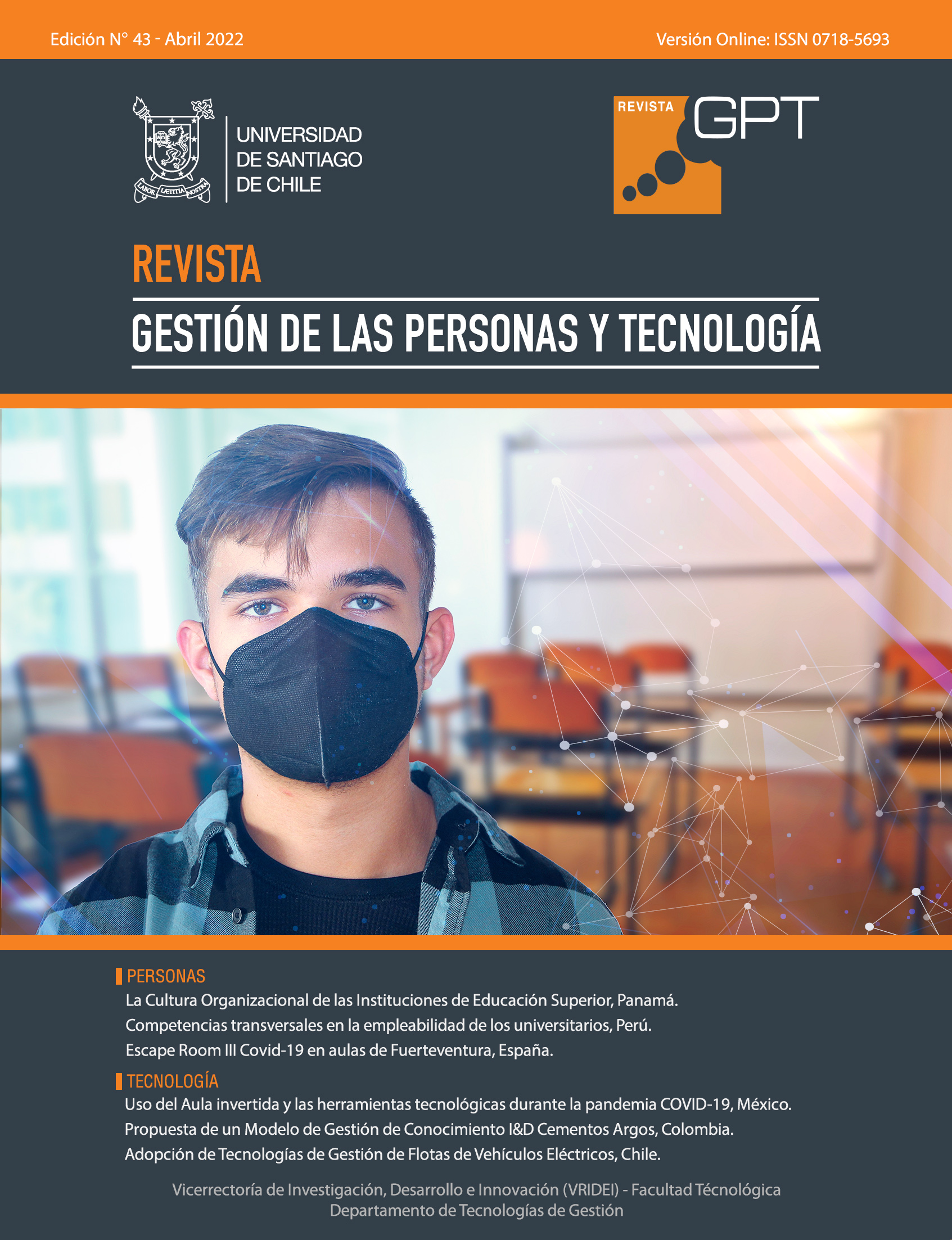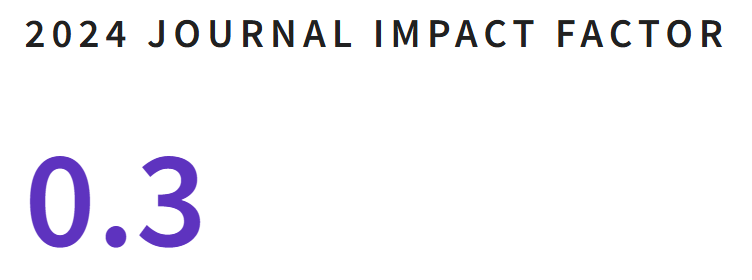Use of the Flipped Classroom and technological tools in the Project Management course during the COVID-19 pandemic
DOI:
https://doi.org/10.35588/gpt.v15i43.5477Keywords:
Flipped Classroom, ICT, student perception, data science, Google Classroom, ZoomAbstract
The aim of this mixed research is to analyze the impact of the Flipped Classroom and technological tools in the educational process about the planning of Projects in the Visual Arts during the COVID-19 pandemic. In the Flipped Classroom, the students consulted the digital readings in Google Classroom before the virtual sessions, discussed the topics in Zoom during the virtual sessions, and held the discussion forums in Google Classroom after the virtual sessions. The participants are 24 students of the Degree in Visual Arts who studied the Project Management course at the National Autonomous University of Mexico during the 2021 school year. The results indicate that the activities of the Flipped Classroom positively influence the assimilation of knowledge and motivation of the students in the Project Planning unit. Finally, Flipped Classroom together with technology favors the creation of new school activities during the COVID-19 pandemic.
Downloads
References
Baki, R., Birgoren, B. & Aktepe, A. (2021). Identifying factors affecting intention to use in distance learning systems. Turkish Online Journal of Distance Education, 22(2), 58-80. DOI: 10.17718/tojde.906545
Demir, E. & Gologlu-Demir, C. (2021). Investigation of parents’ opinions about distance education during the covid-19 pandemic. Turkish Online Journal of Distance Education, 22(2), 42-57. DOI: 10.17718/tojde.906485
Ekahitanond, V. (2022). Perceived Efficacy of Google Classroom Usage in Varied English Courses. International Journal of Emerging Technologies in Learning, 17(5), 266-280. DOI: 10.3991/ijet.v17i05.22403
Gende, D. (2020). Redesigning assessments for remote learning. The Physics Teacher, 58(6), 440-443. DOI: 10.1119/10.0001849
Kavrayici, C. (2021). The relationship between classroom management and sense of classroom community in graduate virtual classrooms. Turkish Online Journal of Distance Education, 22(2), 112-125. DOI: 10.17718/tojde.906816
Leatherman, J. L., & Cleveland, L. M. (2020). Student exam performance in flipped classroom sections is similar to that in active learning sections, and satisfaction with the flipped classroom hinges on attitudes toward learning from videos. Journal of Biological Education, 54(3), 328-344. DOI: 10.1080/00219266.2019.1575266
McCord, R., & Jeldes, I. (2019). Engaging non-majors in MATLAB programming through a flipped classroom approach. Computer Science Education, 29(4), 313-334. DOI: 10.1080/08993408.2019.1599645
Qin, S., Orchakova, L., Liu, Z.-Y., Smirnova, Y., & Tokareva, E. (2022). Using the Learning Management System "Modular Object-Oriented Dynamic Learning Environment" in Multilingual Education. International Journal of Emerging Technologies in Learning, 17(3), 173-191. DOI: 10.3991/ijet.v17i03.25851
Rahmadi, I. F. (2021). Teachers’ technology integration and distance learning adoption amidst the covid-19 crisis: a reflection for the optimistic future. Turkish Online Journal of Distance Education, 22(2), 26-41. DOI: 10.17718/tojde.906472
Salas-Rueda, R. A. (2021). Students’ perceptions of the use of the flipped classroom during the educational process of linear functions. Cultura y Educación, 33(3), 431-454. DOI: 10.1080/11356405.2021.1949109
Salas-Rueda, R. A. (2020). Use of the flipped classroom to design creative and active activities in the field of computer science. Creativity studies, 13(1), 136-151. DOI: 10.3846/cs.2020.10336
Salas-Rueda, R. A., Castañeda-Martínez, R., Eslava-Cervantes, A. L., & Alvarado-Zamorano, C. (2022). Teachers’ Perception About MOOCs and ICT During the COVID-19 Pandemic. Contemporary Educational Technology, 14(1), ep343. DOI: 10.30935/cedtech/11479
Salas-Rueda, R. A., De-La-Cruz-Martínez, G., Alvarado-Zamorano, C., & Prieto-Larios, E. (2021). Use and analysis of the collaborative wall in the teaching-learning process on history considering data science. Conhecimento Online, 13(1), 48-66. DOI: 10.25112/rco.v1i0.2361
Sun, X., Zhang, X., & Lei, L. (2022). The Effects of Online Role-play Teaching Practice on Learners’ Availability for Resources. International Journal of Emerging Technologies in Learning, 17(5), 4-18. DOI: 10.3991/ijet.v17i05.30575
Vivek, C. M., & Ramkumar, P. (2021). Evaluation of course outcome attainment of engineering course with traditional, blended and flipped classroom approaches. Education and Information Technologies, 26, 2225-2231. DOI: 10.1007/s10639-020-10353-7
Westervelt, K. C., Hing, W., McGovern, M. C., Banks, L., Carney, C., Kunker, K., Magoon, A., Sibold, J. & Crane, L. (2018). An online model of international clinical mentoring for novice physical therapists. Journal of Manual & Manipulative Therapy, 26(3), 170-180. DOI: 10.1080/10669817.2018.1447789
Williams, K. M. & Corwith, A. (2021). Beyond Bricks and Mortar: The efficacy of online learning and community-building at College Park Academy during the COVID-19 pandemic. Education and Information Technologies, 26, 5055-5076. DOI: 10.1007/s10639-021-10516-0
Yang, C. R. & Chen, Y. (2020). Implementing the flipped classroom approach in primary English classrooms in China. Education and Information Technologies, 25, 1217-1235. DOI: 10.1007/s10639-019-10012-6
Yu, H., & Hu, J. (2022). ICT Self-Efficacy and ICT Interest Mediate the Gender Differences in Digital Reading: A Multilevel Serial Mediation Analysis. International Journal of Emerging Technologies in Learning, 17(5), 211-225. DOI: 10.3991/ijet.v17i05.25691










